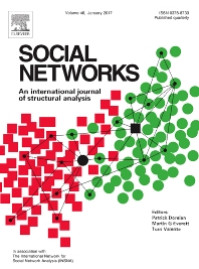
Abstract
Informal status in communities is a relational phenomenon, it is attributed by others, and can be analysed using social network measures. However, many studies measure a single network relation – friendship – and interpret it related to status hierarchies: the number of friends is assumed to indicate status and asymmetric friendships are assumed to indicate status difference. While this practice is grounded in theoretical models of group structure, its assumptions have not been tested thoroughly and contradict research from various fields. We assess the validity of the approach using multiplex network data with three measures of status attribution from 17,469 high-school students in 5 European countries. We find that (i) asymmetric and symmetric friendships rarely overlap with status attributions, (ii) asymmetric friends are closer in status than expected by chance, and (iii) friendship and status attribution indegrees are only moderately correlated. These findings show that friendship relations cannot substitute for direct measurements of status in the study of informal hierarchies.

